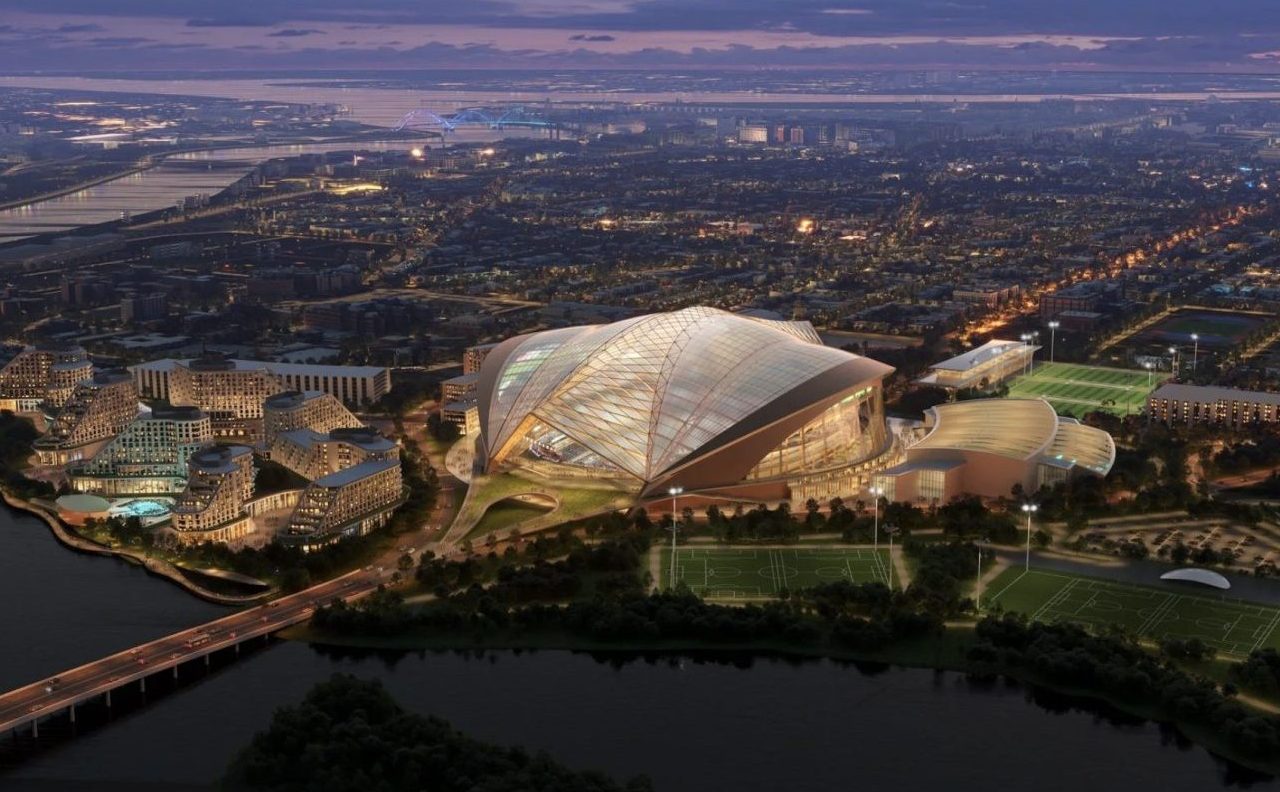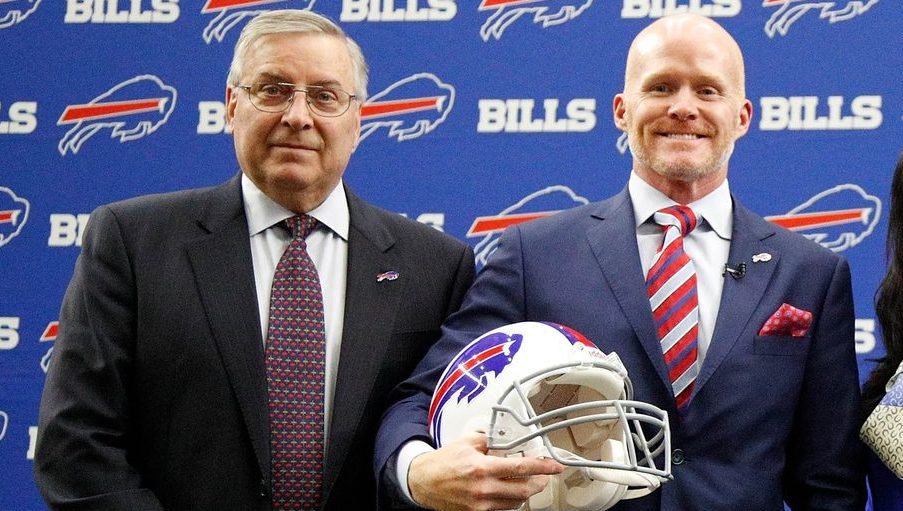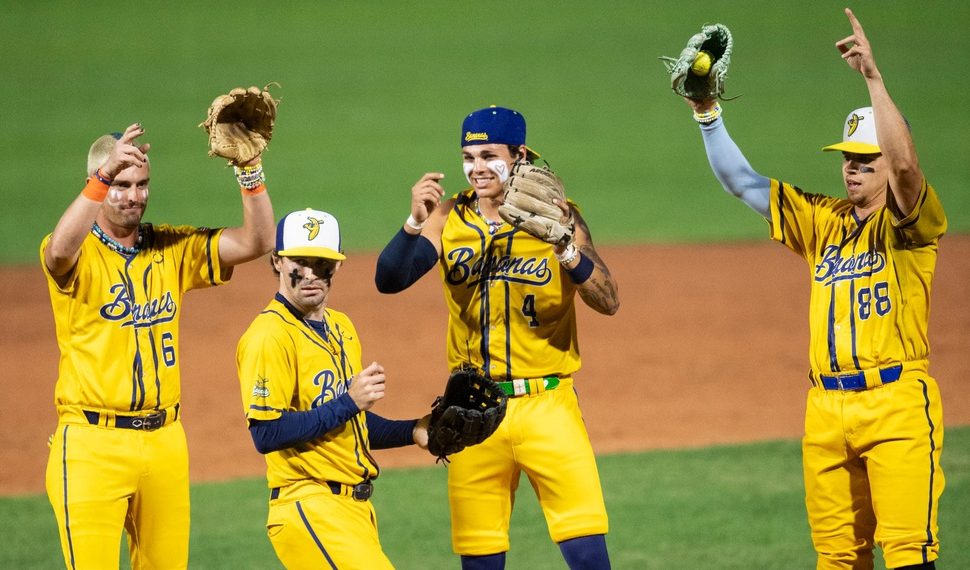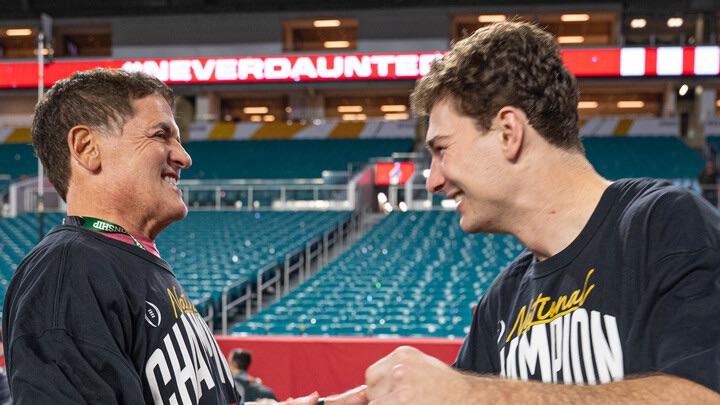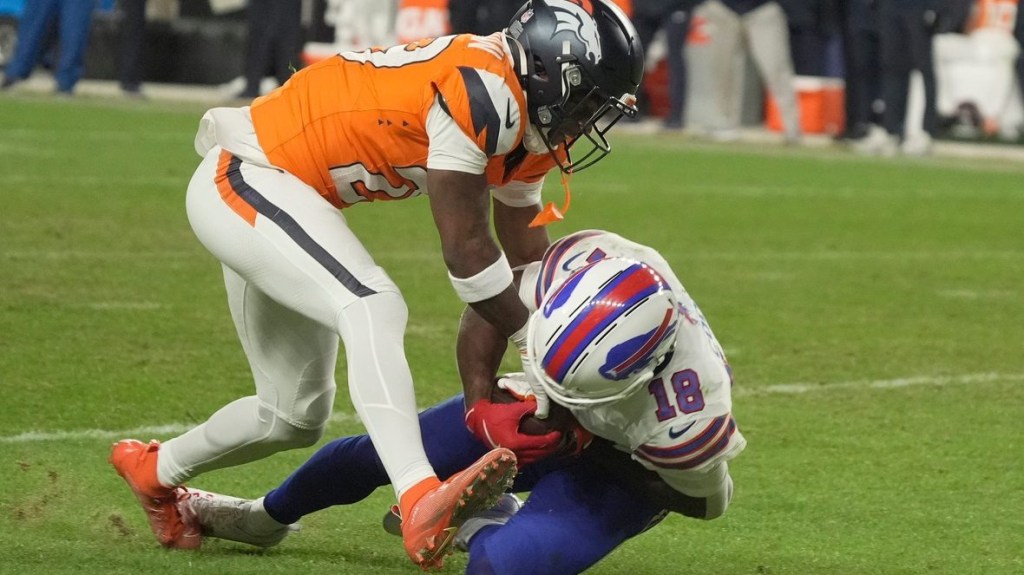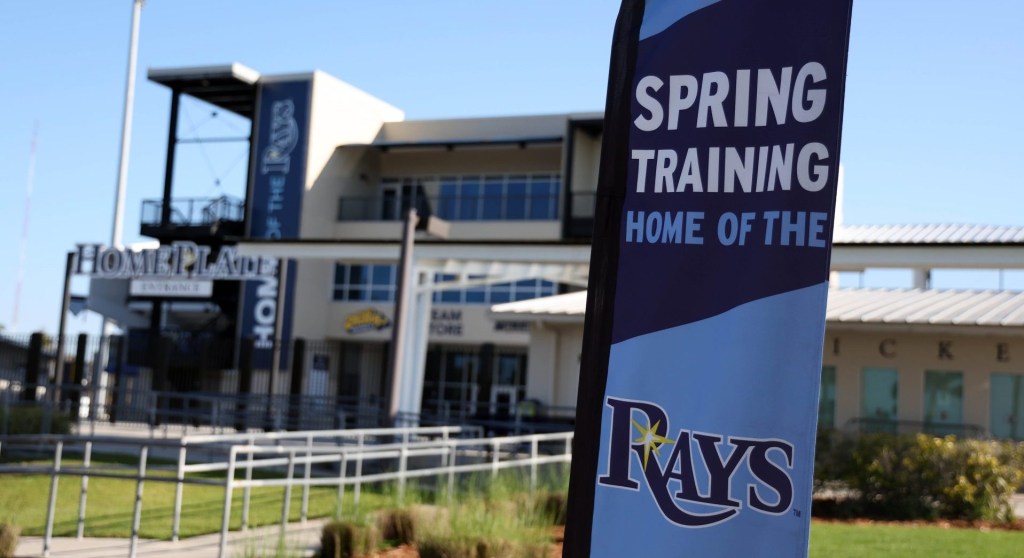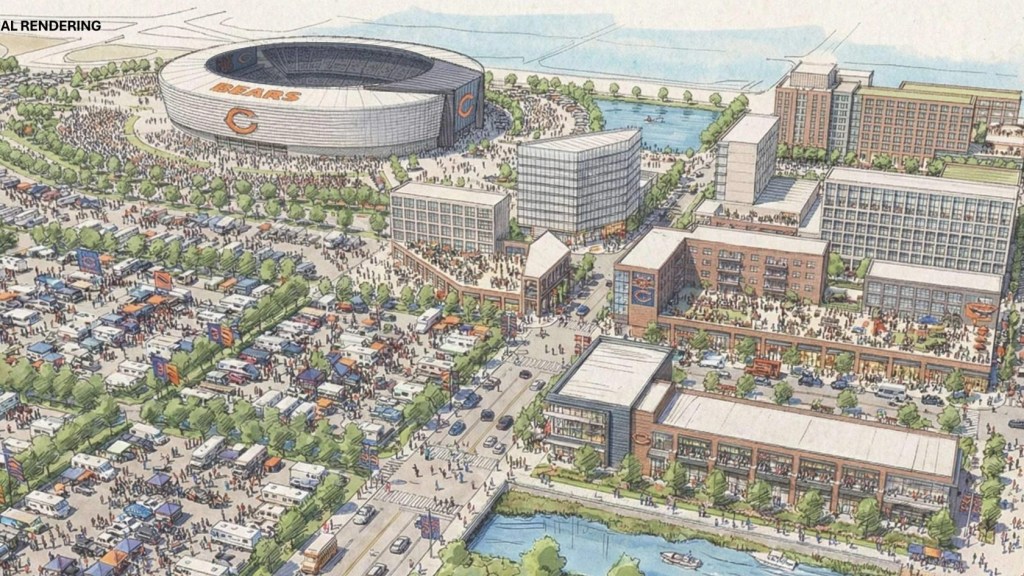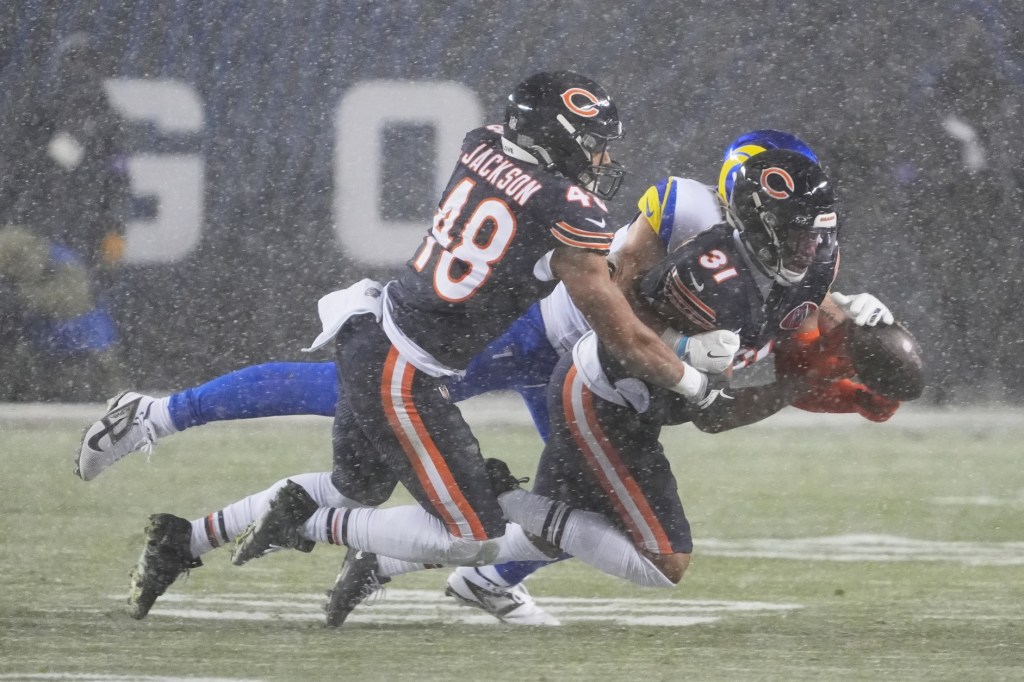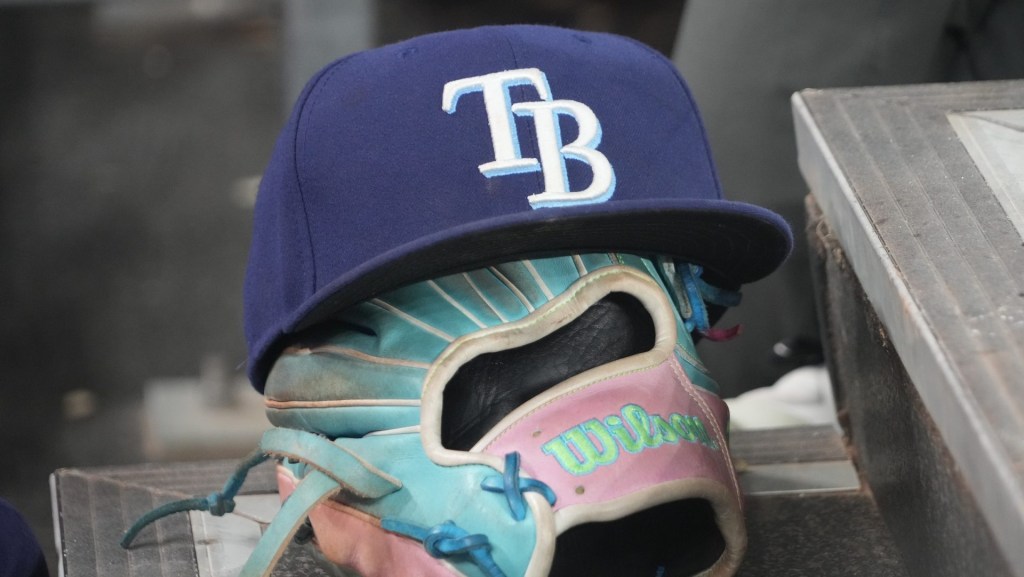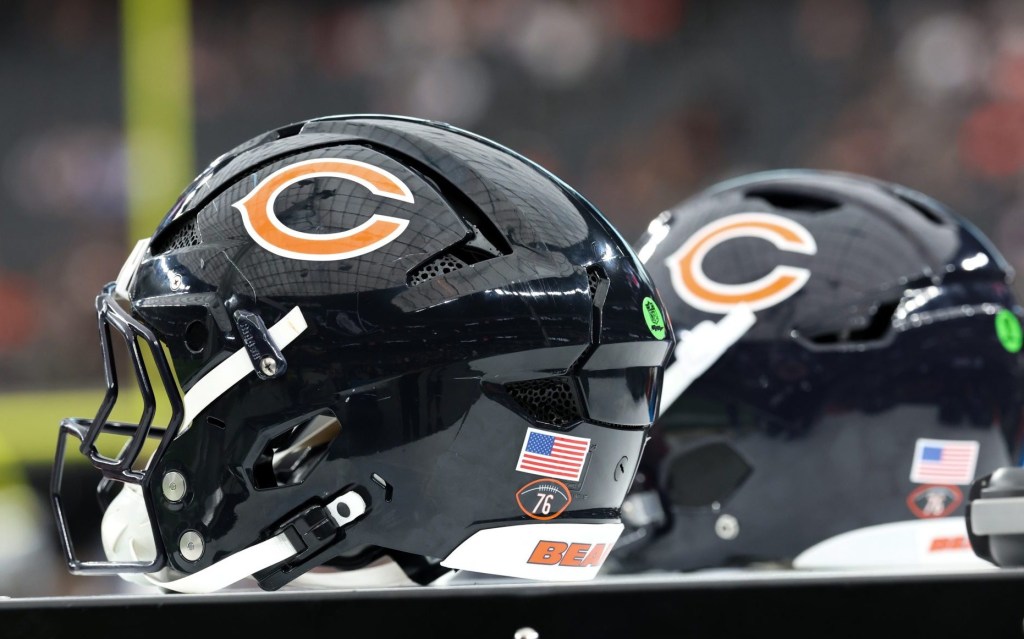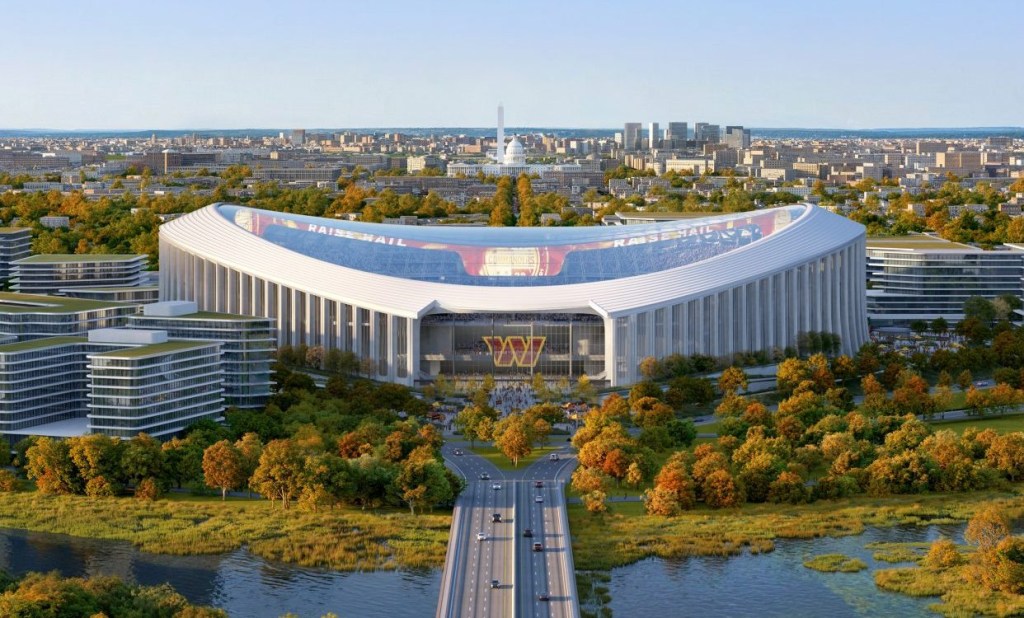The Commanders are officially returning to the District of Columbia after local legislators made a second and final vote to approve public funding for a $3.8 billion venue at the grounds of RFK Stadium. The initial glide path to secure the deal, however, hit significant turbulence on Wednesday.
Following an initial approval on Aug. 1 and the run-up to the second vote required in D.C. rules, the council again certified the stadium plan Wednesday evening by an 11–2 margin. The vote now paves the way for the construction of a domed venue and mixed-use development at the site of the team’s former home, with the new stadium targeted for a 2030 opening. Public money will represent about $1.1 billion in the project in a bid to reinvigorate a long-neglected area.
“An NFL stadium by itself is not a good investment. … But we’re talking about a bigger vision for the city and where we’re going to be in 50 years,” said council member Charles Allen. He was an initial skeptic on the deal who cheered the subsequent improvements to the framework to build “the most transit-friendly stadium in the NFL.”
That vote, however, only happened after frenetic last-minute negotiations early Wednesday between council leaders and the Commanders. Several council members sought to have a series of amendments passed that would have more substantively changed the deal agreed to last month.
In particular, the Commanders could have been on the hook for significant financial penalties for missing development milestones, in some cases reaching $10 million per year, with few, if any, carveouts for outside circumstances. Another potential amendment that failed would have seen land under team control clawed back by D.C. if undeveloped by 2050.
The team wrote a letter to the council on Wednesday morning that it was “presented with a list of unworkable and impractical new last-minute demands … which we simply cannot agree to as it jeopardizes the deal.”
The discord was largely resolved during a lengthy, closed-door meeting that delayed the start of the council hearing by two hours, and the financial penalty element in particular was later formally rejected by the council. The amendments approved late Wednesday were more technical in nature, relating to matters such as covenants around environmental standards and the routing of some stadium fees to community reinvestment.
“Today is a historic day for D.C., the Commanders organization, and our fans,” team owner Josh Harris said in a statement. “With the council’s approval, we can now move forward on the transformative RFK project that will bring lasting economic growth for our city.”
Moving Forward
D.C. Mayor Muriel Bowser, a big advocate of the stadium deal, also cheered the eventual passage.
“This is the final step in securing our future at the new RFK Stadium,” Bowser said. “Our businesses, our people, our project. Now, let’s get to work.”
The Commanders are now firmly part of a fast-growing stadium development wave across the NFL. In addition to projects for the Bills and Titans that are well into active construction, teams such as the Bears, Broncos, and Browns are all actively pursuing new venues, and others, such as the Eagles, are considering ones as well.
